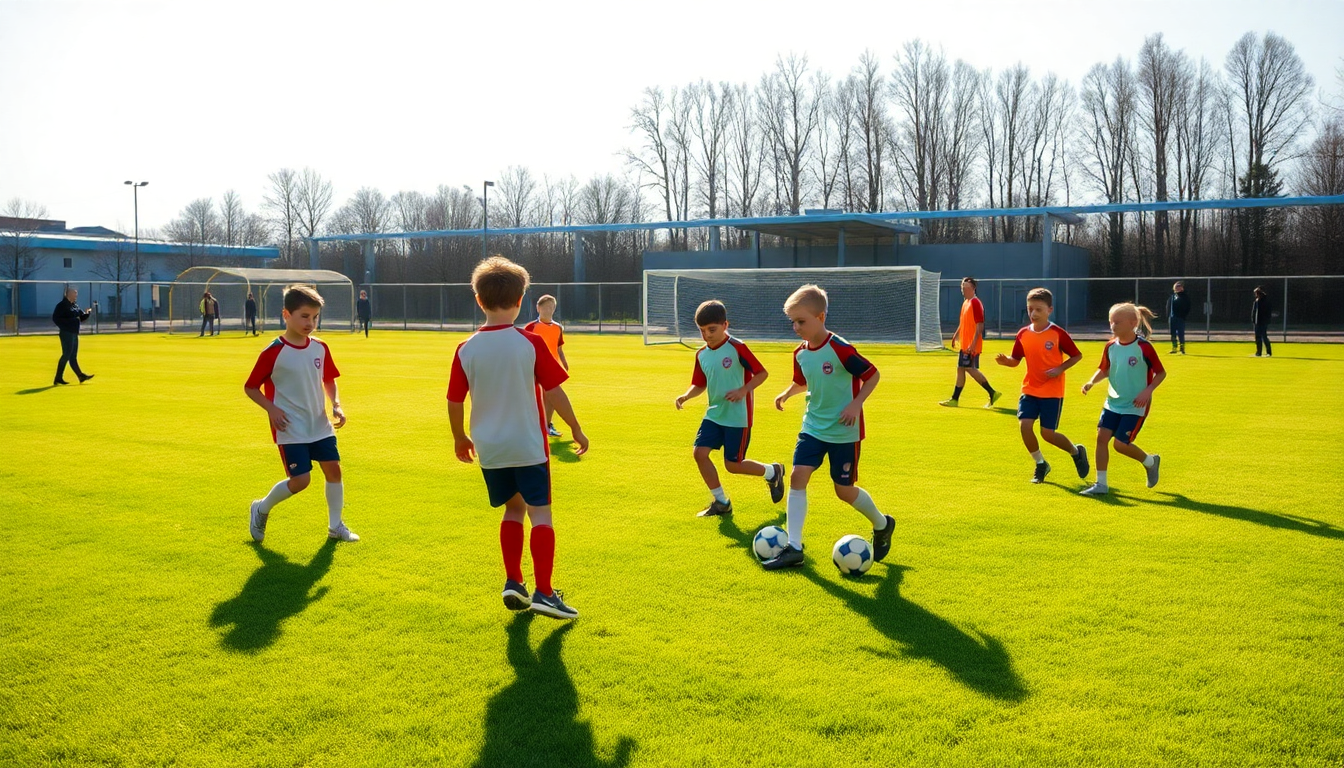Table of Contents
In a notable change, Bayern Munich has decided to shift its partnership with Rwanda from a commercial sponsorship to a focus on youth development in football. This move comes amid growing criticism and allegations about Rwanda’s involvement in the conflict in the Democratic Republic of the Congo (DRC). As the German football powerhouse responds to fan discontent, the revamped agreement aims to align more with developmental goals rather than just commercial interests. But what does this mean for the future of football in Africa?
Background of the Sponsorship
Bayern Munich initially entered into a five-year sponsorship deal with Rwanda in 2023. This agreement featured prominent branding within the stadium and promotional events designed to boost tourism and investment in the African nation. It also marked a shift from a previous partnership with Qatar, showcasing Bayern’s strategy to collaborate with countries eager to enhance their global image through sports. However, this sponsorship quickly became controversial as fans raised concerns about Rwanda’s alleged support for rebel groups in the neighboring DRC, leading to accusations of ‘sportswashing.’ Have you ever wondered how a brand’s values can affect its reputation?
The backlash culminated in protests from Bayern fans, who made their disapproval clear by displaying banners during matches. The sentiment among supporters intensified with claims from the United Nations about Rwanda’s involvement in the ongoing conflict, complicating the club’s association with the country.
Transformation of the Partnership
In response to these challenges, Bayern Munich’s management announced a new direction for the partnership, now focusing on developing young football talent through the FC Bayern Academy in Kigali. According to Bayern’s Chief Executive, Jan-Christian Dreesen, this shift signifies a commitment to nurturing football potential in Africa while making a positive social impact. Isn’t it refreshing to see sports organizations take a stand for something meaningful?
This transition marks a significant departure from the original commercial framework. Bayern aims to foster a more meaningful relationship with Rwanda that prioritizes youth development. The new agreement, now a three-year collaboration, envisions expanding the FC Bayern Academy, establishing it as a cornerstone of both football and social initiatives in the region. Could this be a blueprint for future sports partnerships?
Future Prospects and Implications
As Bayern Munich prepares to phase out its ‘Visit Rwanda’ branding, the club hasn’t specified a timeline for this transition yet. Currently, the branding remains on its website as part of the club’s sponsors. Nevertheless, the redefined partnership aligns with broader organizational goals to enhance footballing talent in Africa and support local communities. How will this impact the perception of both Bayern and Rwanda in the long run?
Rwanda’s growing presence in European football, with sponsorship deals with major clubs like Paris Saint-Germain and Arsenal, reflects a strategic push to brand the nation as a hub for tourism, investment, and high-performance sports. This new direction for Bayern highlights a rising trend among sports organizations to adopt a more socially responsible stance that resonates with public sentiment.
In conclusion, Bayern Munich’s restructured partnership with Rwanda sheds light on the complexities and evolving nature of sports sponsorships globally. While the club seeks to distance itself from controversial commercial sponsorships, it simultaneously embraces the chance to positively impact youth development in football. This illustrates the potential for sports to drive social change—something we can all get behind.


